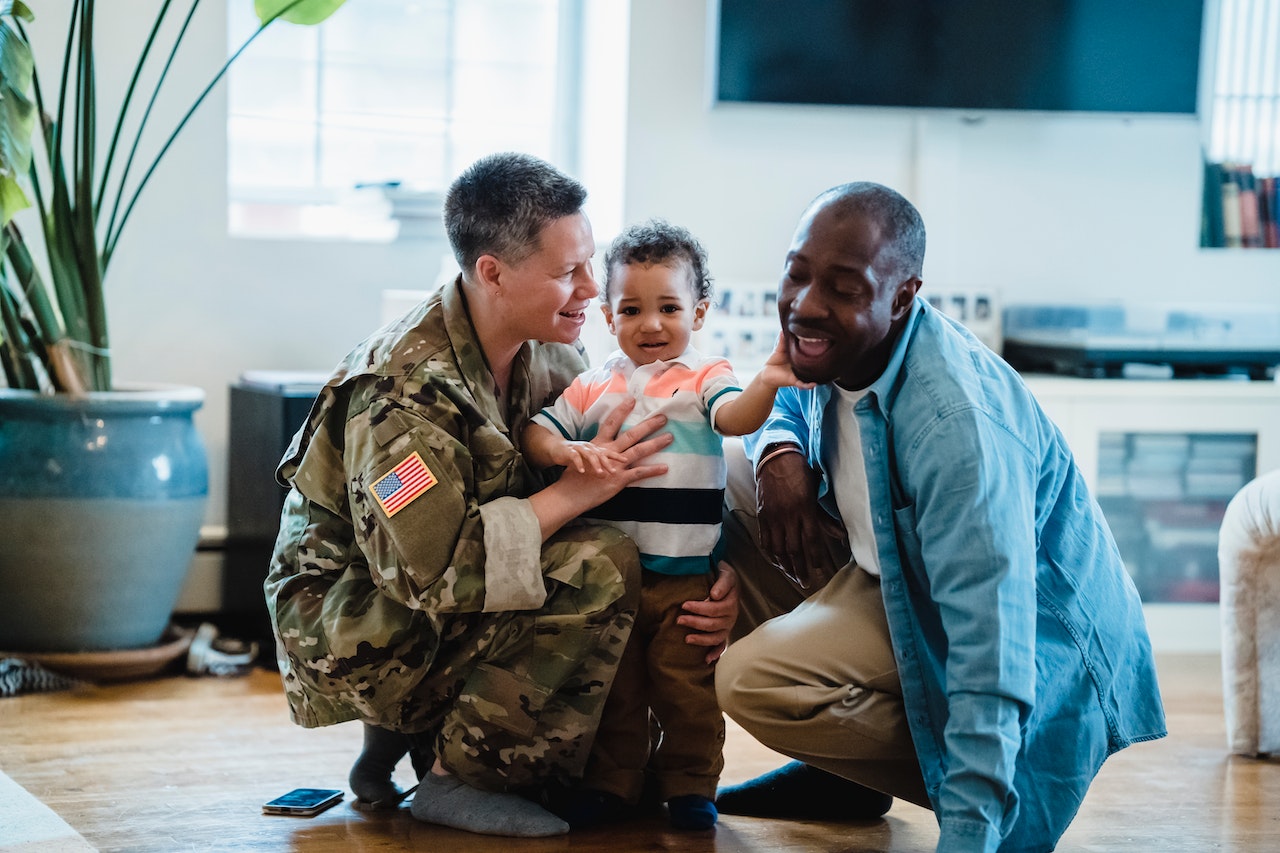February 10, 2021
Tips to Bridge the Gap with Your Partner After a Long Separation

Photo by George Pak under Pexels License
A long-distance relationship is hard enough in a normal partnership. Military spouses have it even worse. Apart from trying to circumvent time and distance, military spouses have to constantly worry about the safety of their partners while they are deployed overseas.
For a soldier, deployment means months of being away from their family while missing out on major milestones. This makes them feel sorry for their partner, who has to deal with the double role of being the mother and father to their kids while they’re away.
That is why a military family experiences quite a shock when it comes time for the soldier to leave the service to return to their family. After the initial excitement of reunion, a military spouse often encounters many challenges as they redefine and re-establish their role in the family.
Reconnecting with Your Spouse
If you’re a veteran who needs help in reconnecting with your spouse, here are some tips that can prove to be useful in rekindling your relationship.
- Don’t feel pressured.
During the time you were away, your family members must have established a new norm. It takes a while to re-establish a new routine, so if your partner has gotten used to calling the shots, be supportive and simply provide inputs. Show your partner your appreciation for the time they stepped up to the role of the head of the household. Show that you can share the burden now that you are back for good.
- Communicate.
Communicate with your spouse and be sensitive to their feelings. As you wrestle with your adjustment period, they too must get used to the changes in the setup. Be patient with each other when stress sets in.
- Be an active co-parent.
Your spouse might have taken on both parenting roles while you were stationed overseas, so it is important to gradually reassert your role as a parent and a partner. Talk about what needs to be done and do not discount your spouse’s opinions. Show respect and appreciation for your partner to pave a smoother road to parenthood.
- Mind your mental health.
Months or years in deployment might have taken its toll on your mental health. This is something that your family may not immediately understand. Seek treatment or talk to a counselor about your issues to make sure that those issues will not affect your relationship with your family. When you feel comfortable enough to share some of your experiences with them to promote better understanding and communication with the family, talk to your partner first.
- Make time for your spouse.
You need to make time for your partner. Get a babysitter to take care of your kids and go on a relaxing date with your spouse, even if it is just for a few hours a week. You need to work on your relationship with your spouse since you spent a long period away from your partner. You need to catch up and compensate for lost time.
You Can Make a Difference in Their Lives

Photo by Pavel Danilyuk under Pexels License
Even though they’re already back home after their deployment and subsequent separation from the service, many veterans face difficult times ahead. This is especially true for those who came home with service-connected disabilities and mental health issues. These disadvantages make it difficult for them to find decent and stable jobs that can enable them to support themselves and their families. For lack of support, many veterans have also become homeless.
You can make a difference in the lives of your suffering fellow veterans by doing something simple that won’t cost you a single dollar. All you need to do is contact us at Veteran Car Donations and turn over to us any old car or any other type of vehicle you have that you no longer need.
We’ll auction off your donated vehicle and use the proceeds to support the life-changing programs and services that our charity partners deliver to their beneficiaries. These IRS-certified 501(c)3 nonprofits provide disadvantaged veterans and their families with quality health care, financial aid, housing assistance, employment opportunities, family support, educational scholarships, psychotherapy services, and many other benefits.
As our donor, you’ll get to enjoy a maximum tax deduction. You’ll also benefit from our free pickup and towing service, which is available in all parts of the country.
If you want to learn more about our vehicle donation program, feel free to visit our FAQs page. For inquiries or concerns, reach out to us at 877-594-5822 or send us a message online.
Help Your Hurting Fellow Vets Today!
Lend a helping hand to your struggling fellow veterans in your community. Of all people, you’re the one who can best understand their situation. Call Veteran Car Donations at 877-594-5822 or fill out our online donation form to get started with your car donation now!
Last Updated: March 8th, 2023
